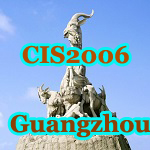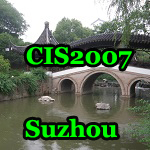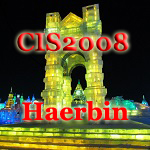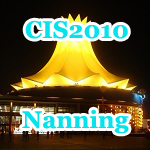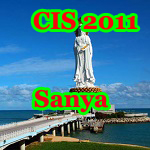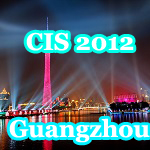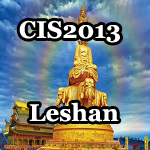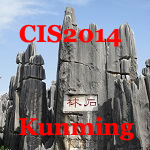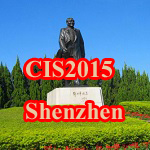Hong Kong, China
December 15-18, 2017
Hong Kong, China
December 15-18, 2017
Hong Kong, China
December 15-18, 2017
Hong Kong, China
December 15-18, 2017
Hong Kong, China
December 15-18, 2017
Hong Kong, China
December 15-18, 2017
The 13th International Conference on Computational Intelligence and Security
Keynote Speakers
|
Topic 1: 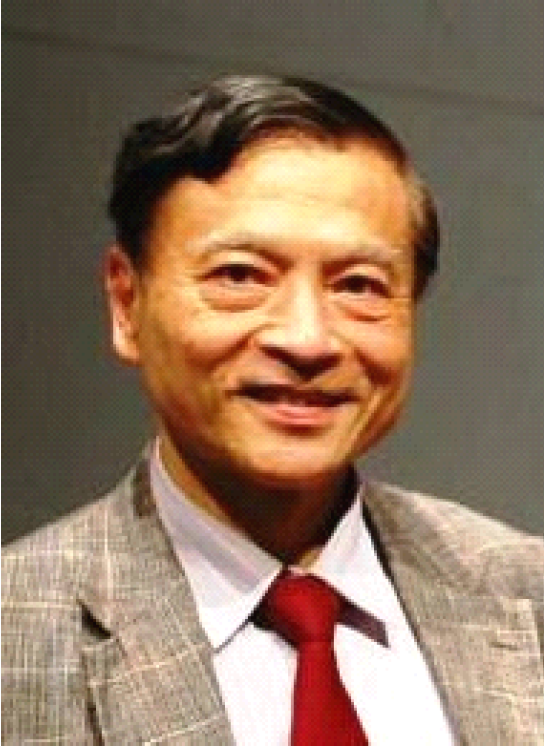
AI & PR and Applications for Greener and Safer world Prof. Patrick S.P. Wang Fellow, IAPR , ISIBM and WASE Professor of Computer and Information Science Northeastern University, Boston, MA, USA. Zijiang Visiting Chair, ECNU, Shanghai, China. iCORE Visiting Professor, University of Calgary, Canada. |
Abstract: This talk is concerned with fundamental aspects of Intelligent Pattern Recognition (IPR) and applications. It basically includes the following: Basic Concept of Automata, Grammars, Trees, Graphs and Languages. Ambiguity and its Importance, Brief Overview of Artificial Intelligence (AI), Brief Overview of Pattern Recognition (PR), What is Intelligent Pattern Recognition (IPR)? Interactive Pattern Recognition Concept, Importance of Measurement and Ambiguity, How it works, Modeling and Simulation, Basic Principles and Applications to Computer Vision, Security, Road Sign Design, Safer Traffic and Robot Driving with Vision, Ambiguous (Dangerous and Bad) design of Road Signs vs Unambiguous (Good) Road Signs, How to Disambiguate an Ambiguous Road Sign? What is Big Data? and more Examples and Applications of Learning and Greener World using Computer Vision. Finally, some future research directions are discussed.
Biography: Prof. Patrick S.P. Wang, PhD. Fellow, IAPR, ISIBM, WASE, and IEEE & ISIBM Outstanding Achievement Awardee, is Tenured Full Professor, Northeastern University, USA, iCORE (Informatics Circle of Research Excellence) Visiting Professor, University of Calgary, Canada, Otto-Von-Guericke Distinguished Guest Professor, Magdeburg University, Germany, Zijiang Visiting Chair, ECNU, Shanghai, China, as well as honorary advisory professor of several key universities in China, including Sichuan University, Xiamen University, East China Normal University, Shanghai, and Guangxi Normal University, Guilin.
Prof. Wang has published over 26 books, 200 technical papers, 3 USA/European Patents, in PR/AI/TV/Cybernetics/Imaging, and is currently founding Editor-in-Chief of IJPRAI (International Journal of Pattern Recognition and Artificial Intelligence), and Book Series of MPAI, WSP. In addition to his technical interests, Dr. Wang also published a prose book, “Harvard Meditation Melody” 《哈佛冥想曲》, 《劍橋狂想曲》 and many articles and poems regarding Du Fu and Li Bai’s poems, Beethoven, Brahms, Mozart and Tchaikovsky’s symphonies, and Bizet, Verdi, Puccini and Rossini’s operas.
|
Topic 2: 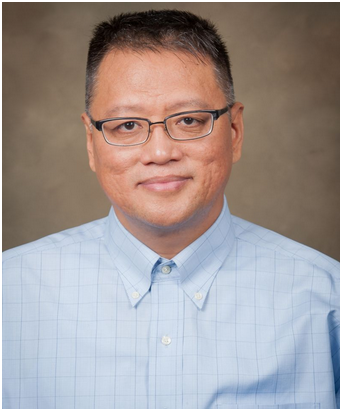
Malicious Meter Detection in Smart Grids Prof. Yang Xiao Professor of Department of Computer Science, The University of Alabama, Tuscaloosa, AL 35487-0290 USA. |
Abstract: In smart grids, smart meters may potentially be attacked or compromised to cause certain security risks. It is challenging to identify malicious meters when there are a large number of users. In this talk, we explore the malicious meter inspection (MMI) problem in neighborhood area smart grids. We propose a suite of inspection algorithms in a progressive manner. First, we present a basic scanning method, which takes linear time to accomplish inspection. The scanning method is efficient when the malicious meter ratio is high. Then, we propose a binary-tree-based inspection algorithm, which performs better than scanning when the malicious meter ratio is low. Then, we employ an adaptive-tree-based algorithm, which leverages advantages of both the scanning and binary-tree inspections. Our approaches are tailored to fit both static and dynamic situations. The theoretical and experimental results have shown the effectiveness of the adaptive tree approach.
Furthermore, we propose three novel detectors to detect Non-Technical Loss (NTL) frauds in Smart Grid. These detectors model an adversary's behavior and detect NTL frauds based on several numerical analysis methods which are lightweight and non-traditional. The first detector is named NTL Fraud Detection (NFD) which is based on Lagrange polynomial. NFD can detect a single tampered meter as well as multiple tampered meters in a group. The second detector is based on Recursive Least Square (RLS), which is named Fast NTL Fraud Detection (FNFD). FNFD is proposed to improve the detection speed of NFD. Colluded NTL Fraud Detection (CNFD) is the third detector that we propose to detect colluded NTL frauds. We have also studied the parameter selection and performance of these detectors.
Biography: Dr. Yang Xiao currently is a Professor of Department of Computer Science at the University of Alabama, Tuscaloosa, AL, USA. His current research interests include Cyber Physical Systems, Security, Wired/Wireless Networks, Smart Grid, and Telemedicine. He has published over 200 journal papers and over 200 conference papers. Dr. Xiao was a Voting Member of IEEE 802.11 Working Group from 2001 to 2004, involving IEEE 802.11 (WIFI) standardization work. He is a Fellow of IET. He currently serves as Editor-in-Chief for International Journal of Security and Networks, International Journal of Sensor Networks, and Journal of Communications. He had (s) been an Editorial Board or Associate Editor for 20 international journals. He served (s) as a Guest Editor for over 20 times for different international journals.
|
Topic 3: 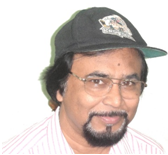
Drowsy Driving - three relevant and related issues Prof. Nikhil R. Pal Fellow, IEEE Professor of Electronics and Communication Sciences Unit of the Indian Statistical Institute, Calcutta, Indian |
Abstract: Every year, all over the world drowsy driving kills many people. About 60% of adult drivers (168 million) saythat they have driven while feeling drowsy in the past year. So detection, understanding and monitoring of drowsiness are very important for drivers’ safety.In this talk I shall consider three issues relatedto drowsy driving, when EEG is used as our source of information.
How can we design an unsupervised system for detection of drowsiness in drivers in a subject and session independent manner?
How the nature ofinformation-flow between different brain regions changes when the vigilancelevel of a subject changes from alert to drowsy? We shall use transfer entropyas a vehicle for this. We shall discuss some interesting findings that may helpto understand the cortico-cortical communication during drowsy driving.
Do we need all EEG channelsor only a subset of channels to solve our problem? We can ask this question forany EEG-based application. I call thisproblem a sensor selection problem.
Biography: Nikhil R. Pal is a Professor in the Electronics and Communication Sciences Unit of the Indian Statistical Institute. His current research interest includes brain science, computational intelligence, machine learning and data mining.
He was the Editor-in-Chief of the IEEE Transactions on Fuzzy Systems for the period January 2005-December 2010. He has served/been serving on the editorial /advisory board/ steering committee of several journals including the International Journal of Approximate Reasoning, Applied Soft Computing, International Journal of Neural Systems, Fuzzy Sets and Systems, IEEE Transactions on Fuzzy Systems and the IEEE Transactions on Cybernetics.
He is a recipient of the 2015 IEEE Computational Intelligence Society (CIS) Fuzzy Systems Pioneer Award, He has given many plenary/keynote speeches in different premier international conferences in the area of computational intelligence. He has served as the General Chair, Program Chair, and co-Program chair of several conferences. He is a Distinguished Lecturer of the IEEE CIS (2010-2012, 2016-2018.) and was a member of the Administrative Committee of the IEEE CIS (2010-2012). He has served as the Vice-President for Publications of the IEEE CIS (2013-2016). He is the President-Elect 2017 of the IEEE CIS.
He is a Fellow of the National Academy of Sciences, India, Indian National Academy of Engineering, Indian National Science Academy, International Fuzzy Systems Association (IFSA), The World Academy of Sciences, and a Fellow of the IEEE, USA.
News:
1. The CIS’17 Proceeding has been available in the website. The conference secretariat will send you the access information very soon.
2. To circumvent the possible slow Internet access, the CIS’17 Secretariat has sent the conference program to all conference participants via e-mail.
Website:


Conference History
|
|

